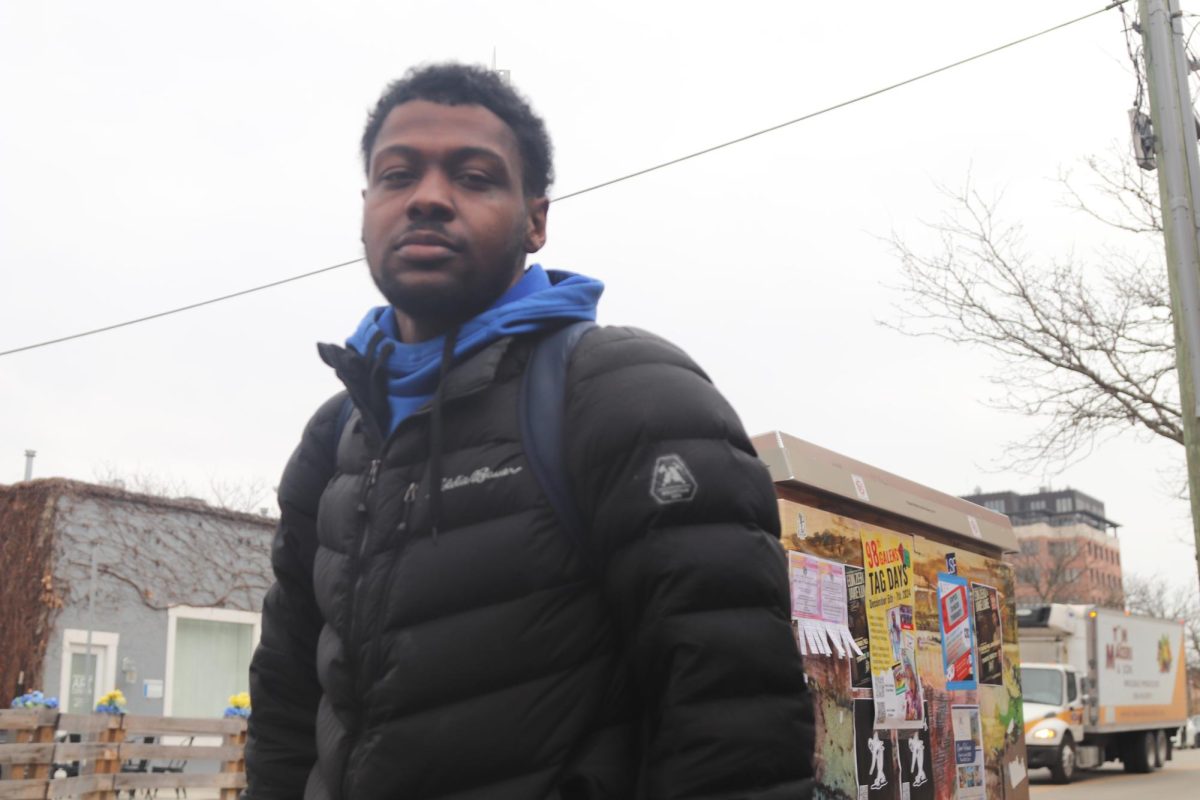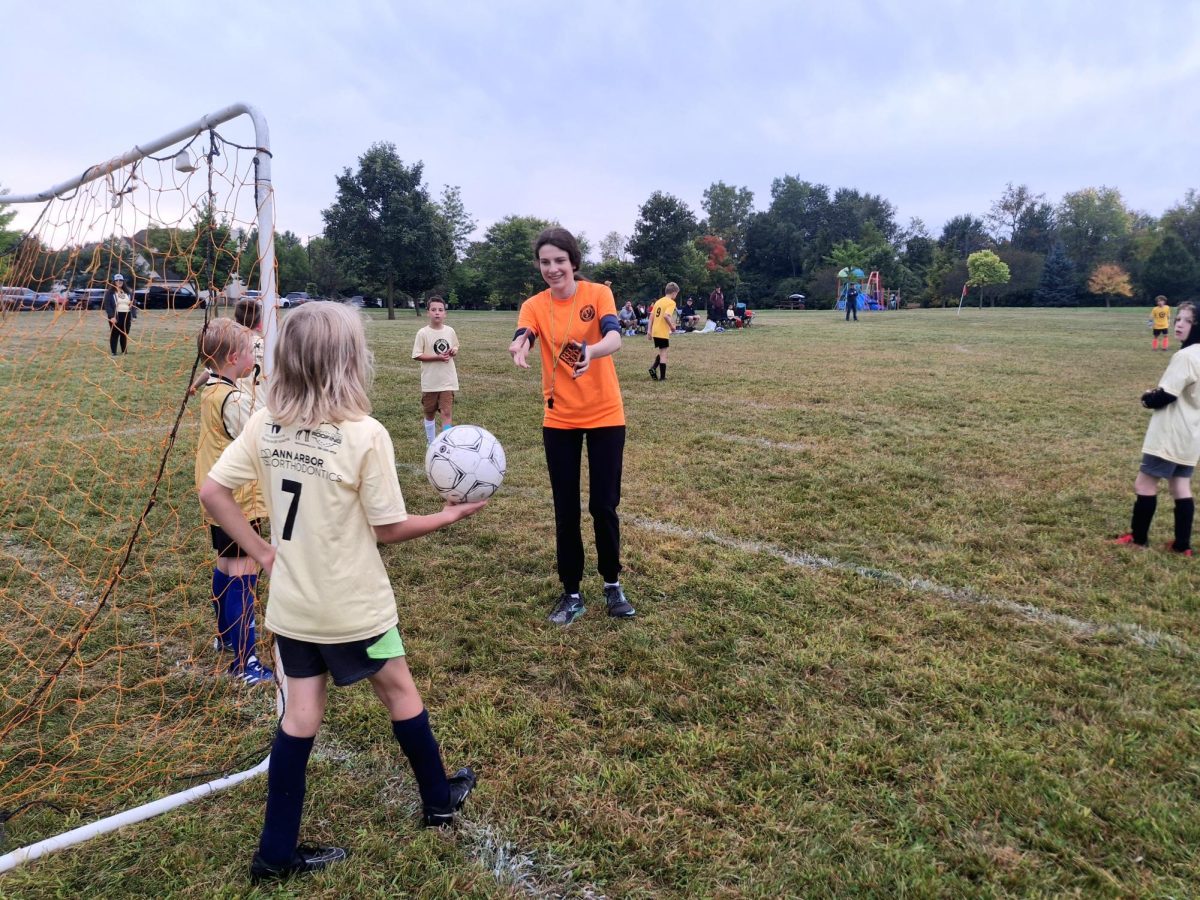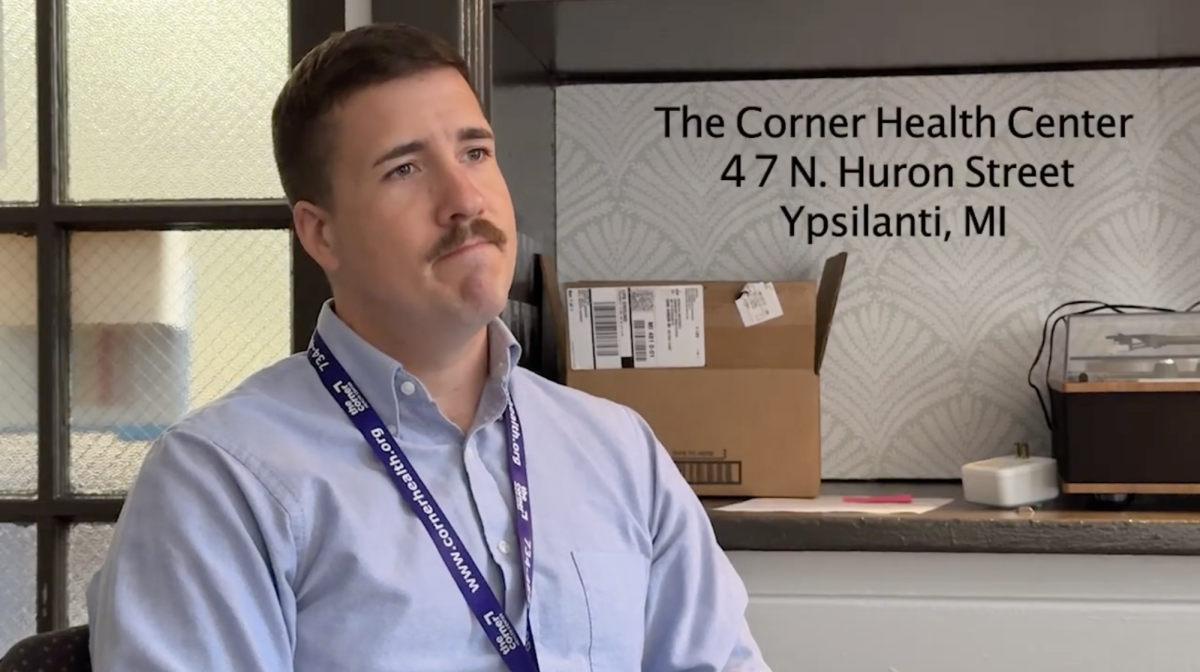Damarcus Brown was outgoing and jolly; he loved finding side hustles to bring in some extra cash. Brown used to sit next to Jaquaz Keech at the kitchen table, where they would eat spaghetti that Keech’s mom had made. Brown was like a brother to Keech; they laughed together, played together and grew up together. Keech was 22 years old when Damarcus Brown was fatally shot in the same neighborhood they grew up in.
This was the moment Keech decided that he needed to move. He needed to get out of the black hole that he called home. Ever since then, Keech has bounced from place to place.
“There was no turning back,” Keech said. “I knew that I couldn’t just stay there. The place you love so much can swallow you up, and you might never make it out— so I keep going.”
Keech was raised on the Westside of Grand Rapids, Michigan. There, he lived in a cluttered house with five sisters and his mom. He was the oldest and the only boy out of the six kids, as they grew up without a dad.
Keech had few positive role models during his developmental years. He was surrounded by theft and poverty growing up, so that’s what he learned. In the past, Keech has been in and out of incarceration for larceny and credit card fraud.
“Just being in them situations will make you eager to make money, to feed your kids, to feed yourself and to just change your situation,” Keech said “You don’t really pass opportunities when it comes to money.”
Now, Keech is 32 years old and actively tries to better himself. He works to split away from the habits he built growing up. Keech learned a lot during his incarceration. His time in prison was a turning point. He realized he needed to make a change and was ready to pick education back up. Now he attends Washtenaw Community College (WCC,) where he studies psychology, math and composition.
Another contributing factor to his desire to change is his kids. Keech has three children who were all born during different challenges in his life: Taylor, his oldest child, was born shortly after he was incarcerated when he was struggling to keep a job and falling back into his old habits. His second child, Jaquaz Jr. came when he was going through mental health battles as well as probation. Adonis, his youngest child, came while he was in jail.
“That’s why I can’t sleep,” Keech said. “I just keep going, knowing that one day I will be able to provide more for them when they go through their struggles.”
Keech wants to be for his kids what his mom was for him. He learned most of what he knows now from his mom, who he relied on into adulthood. Keech’s mom was an independent woman who loved her children. She worked hard to provide for all six of her kids, and she refused to take handouts. She was an optimist but also stubborn. When Keech became old enough to start working to make some money, his mom never let him help out with household expenses. She did a good job of hiding her struggles. She made sure that even if she was going through hard times, people on the outside wouldn’t be able to tell.
His mom’s teaching style was reliant on natural consequences and tough love. At the time, Keech wasn’t too fond of her philosophies. Today, he looks back and is grateful for all that she taught him. She instilled in him a drive to be hard-working and optimistic—a little stubborn, too.
When Keech was just 12 years old, his mom was diagnosed with lupus, an illness that occurs when the immune system attacks healthy tissues and organs. At the time, lupus was not well-researched and rather rare. His mom was sick, but the doctors didn’t know why. It was scary, especially because Keech was so young.
Keech’s mom did a good job of hiding her condition. She put on a brave face so her kids wouldn’t worry. Because of this, the diagnosis hadn’t fully set in until Keech was in eighth grade. That was when he began to look into what exactly lupus was. As he started to understand what his mom was going through, he also started to understand how incredibly sick she was.
When his mom got diagnosed with lupus, working to support her family of seven, including herself, became even harder. Money was already tight, and it only got tighter. Keech eventually became old enough to work, but his mom refused to let him contribute to the household bills. She wanted Keech to do good for himself, not her. She knew she couldn’t give him everything she used to, due to her new diagnosis and the five little girls she was raising.
Keech has watched his mom go through a lot. Not only has she lived with lupus for the majority of her life. She also survived a stroke in 2019. In May, she was given six months left to live. She’s still alive today at age 50 despite her prognosis.
Keech is constantly working. Constantly moving. Constantly trying to climb the social ladder. He warns about the dangers of finding comfort where you are. He found that if you don’t work to get better, you inevitably will sink further down. There is a community within the homeless population that normalizes living on the streets or in the shelter. Keech argues that the comfort they find in that community prevents them from wanting more.
“The reason why people stay there so long is because they find a home in being homeless,” Keech said.
Growth is something that Keech prioritizes in his life. All of his life, he’s lived in poverty and hardship, yet today he still stands tall with his passion unwavering. Keech glows with optimism and innovation. He tries his best to better everything around him.
“Grit to greatness, taking nothing and making it into something,” Keech said. “That is my passion.”










